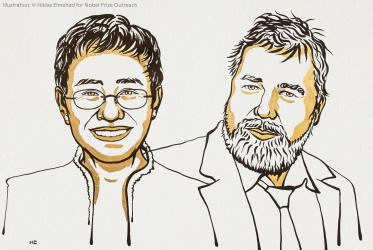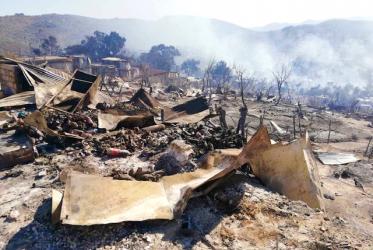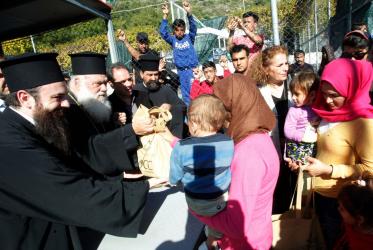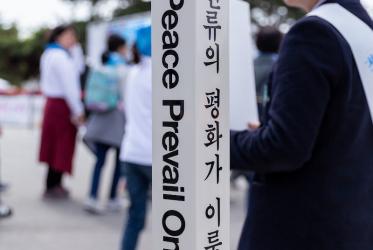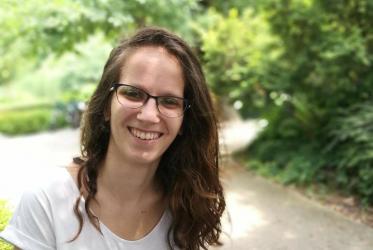Displaying 1 - 20 of 95
WCC congratulates 2021 Nobel Peace Prize laureates
14 October 2021
In a COVID-stricken world, “everyone is important”
23 October 2020
Worldwide prayer campaign begins to end 70-year Korean War
06 February 2020
WCC delegation meets with Korean prime minister
19 November 2019
The cry of the Papuans in Indonesia
14 November 2019
Markus Imhoof film receives human rights award
10 October 2019
A passionate Korean feminist and ecumenist
21 August 2019
Dealing with traumas and healing of wounds
04 June 2019



